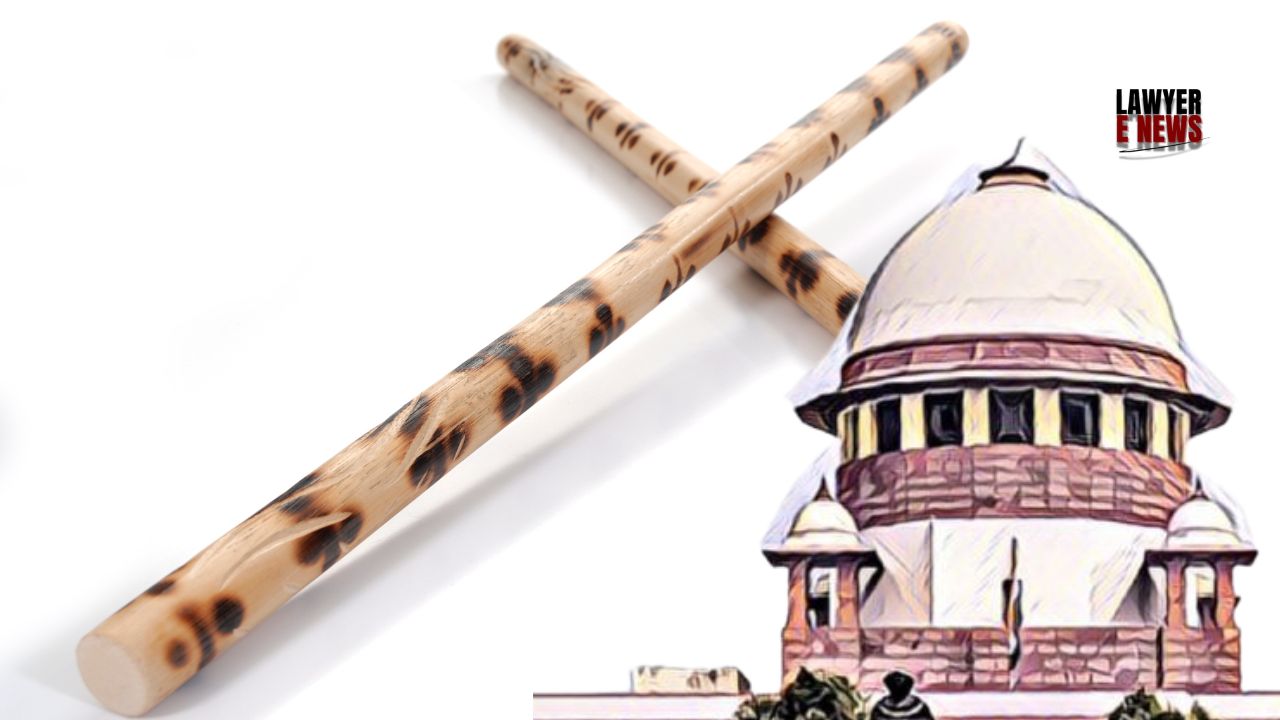-
by Admin
15 February 2026 2:36 AM



"Sudden Fight and Lack of Premeditation Exclude Murder Conviction, Supreme Court of India altered the appellant's conviction from Section 302 IPC (murder) to Section 304 Part I IPC (culpable homicide not amounting to murder). The Court concluded that the assault leading to the deceased’s death was a result of a sudden quarrel, without premeditation, and occurred in the heat of the moment. Considering the circumstances and the time already served by the appellant, the Court sentenced him to the period of imprisonment already undergone.
"Where the assault occurs in a sudden fight or heat of passion without premeditation, and where the weapon used is not carried with intent to kill, the act falls within the scope of culpable homicide under Section 304 Part I IPC." [Para 18]
The case arises from an altercation on March 21, 2014, in the village of Satara district, Maharashtra. The appellant, Sunny @ Santosh Dharmu Bhosale, allegedly assaulted the deceased, Gopal Bhosale, with a bamboo stick during a quarrel.
The appellant had gone to the house of Rajendra Bhosale (PW-5) and abused him and his wife over a loan dispute. When the deceased intervened to pacify the situation, a heated argument ensued. The appellant left the spot, but the deceased followed him. Shortly thereafter, the appellant assaulted the deceased, causing injuries to his face and head, which proved fatal.
Sessions Court: Convicted the appellant under Section 302 IPC (murder) and sentenced him to life imprisonment.
High Court: Upheld the trial court's decision.
Supreme Court: The appellant challenged the concurrent findings, seeking alteration of the conviction to a lesser offense, citing lack of motive and premeditation.
Whether the conviction under Section 302 IPC for murder was sustainable given the absence of premeditation or motive.
Whether the act constituted culpable homicide not amounting to murder under Section 304 Part I IPC, considering the evidence and circumstances.
Absence of Premeditation or Motive: The Court noted that there was no evidence of prior intent or motive to kill the deceased. The assault arose from a sudden quarrel, as the appellant had gone to the house of PW-5 over a loan dispute, and the altercation escalated when the deceased intervened.
Court’s Observation: "The appellant had no premeditated intention to commit murder. The weapon used, a bamboo stick, was not carried with intent to kill and is commonly available in villages." [Para 16]
Sudden Quarrel and Heat of the Moment: The Court highlighted that the deceased followed the appellant after the initial scuffle, and the assault took place during a sudden fight without any preplanned action by the appellant.
Court’s Observation: "The evidence suggests that the altercation was sudden and occurred in the heat of the moment. The appellant’s act cannot be classified as murder under Section 302 IPC." [Para 17]
Nature of the Weapon and Injuries: The weapon used was a bamboo stick, which is an ordinary object, and the injuries did not show undue cruelty or intention to take advantage of the situation.
Court’s Observation: "The injuries caused by the bamboo stick, though fatal, do not demonstrate cruelty or an intention to take undue advantage. This reinforces the conclusion that the act falls within culpable homicide under Section 304 Part I IPC." [Para 18]
Section 304 Part I IPC – Applicability: The Court applied Section 304 Part I IPC, which deals with culpable homicide not amounting to murder, where the act is committed with the intention of causing death but without premeditation or malice aforethought.
The conviction under Section 302 IPC was altered to Section 304 Part I IPC, given the absence of premeditation and the circumstances surrounding the incident.
The appellant, who had already served over 9 years of actual imprisonment and 12 years with remission, was sentenced to the period already undergone.
The appellant’s bail bonds were discharged, and no further imprisonment was required.
Court’s Observation:
"Justice is served when punishment aligns with the nature of the offense. The sentence already undergone by the appellant is sufficient in the circumstances of this case."
[Para 21(iii)]
The Supreme Court’s judgment underscores the importance of distinguishing between murder and culpable homicide not amounting to murder. By taking into account the absence of premeditation, sudden provocation, and the nature of the assault, the Court rightly modified the conviction and sentence. This decision reinforces the principle that the punishment must fit both the crime and its surrounding circumstances.
Date of Decision: November 20, 2024
